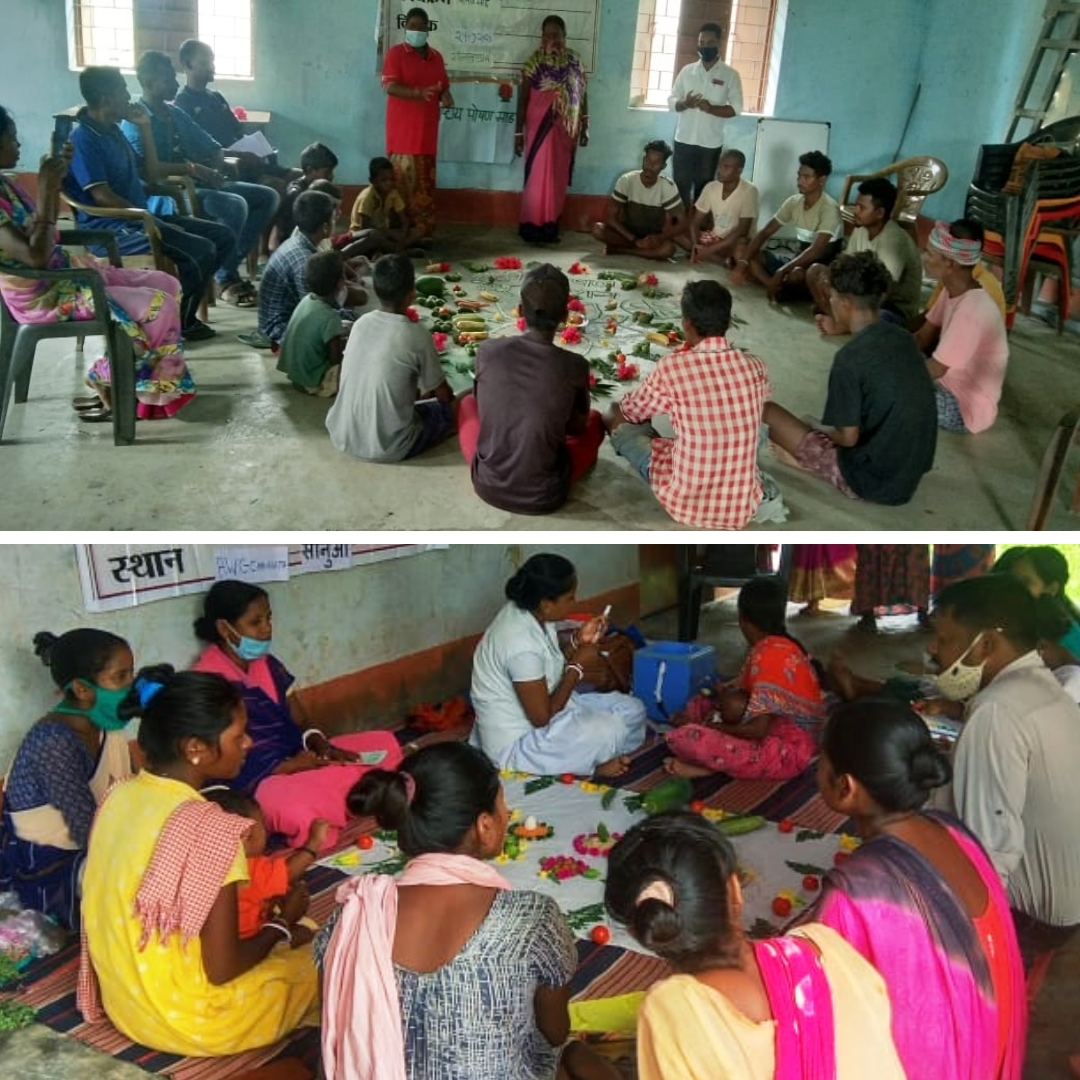
Image Credit: Save The Children
Local Food Is Crucial For Children's Health
Writer: Save the Children
Save the Children is India’s leading independent child rights’ NGO, which works in 18 states of the country. Beginning its journey in 2008 in India, and registered as ‘Bal Raksha Bharat’, we have changed the lives of more than 11 million (1.1 crore) children.
India, 10 Oct 2021 5:53 AM GMT
Creatives : Ankita Singh
A literature lover who likes delving deeper into a wide range of societal issues and expresses her opinions about the same. Keeps looking for best-read recommendations while enjoying her coffee and tea.
Every second child in India is suffering from some form of malnutrition and malnutrition-related causes attribute to 68% of total child mortality in India. Since the pandemic has hit, there is a disruption of key ICDS and health services.
India contributes to the highest burden of child malnutrition globally. Every second child in India is suffering from some form of malnutrition and malnutrition-related causes attribute to 68% of total child mortality in India. Since the pandemic has hit, there is a disruption of key ICDS and health services. With the closure of AWCs and schools, the supplementary nutrition programs and MDM have been affected. Although Government has taken multiple steps to ensure nutrition security, many humanitarian and development agencies have joined hands to support communities and children to mitigate COVID impact to some extent. POSHAN Maah is a crucial and strategic nutritional moment when there is noise, collective efforts and prioritization of nutritional services for our children and mothers.
Poshan Maah: Preventing Undernutrition
On the occasion of 4th Poshan Maah, in the concluding week 'Save the Children, India' (Bal Rakhsa Bharta) has organized a virtual Round Table on 'Community Management of Child undernutrition – A Shared Responsibility' to discuss and deliberate on how effectively all actors and stakeholders can collectively strategize to prevent and manage our children from undernutrition particularly acute malnutrition.
Eminent personalities from government, development partners, and front line ICDS functionary were part of this round table. Rakesh Ranjan- Mission Director, Aspirational District Program, NITI Aayog, Dr Rashmi Singh, Special Secretary cum Director DWCD, Delhi, Sudarshan Suchi – CEO, Save the Children, Dr Abner Daniel, Nutrition Specialist, UNICEF, Smt. Saroj, an Aganwadi worker from Delhi and Dr Antaryami Dash Head, Nutrition Save the children were among the key speakers.
Rakesh Ranjan, Mission Director, Aspirational District Program, NITI Aayog, in his remarks emphasized two vital aspects for community management of undernutrition from govt. perspective. The very first point he made was- effective delivery of govt. health and nutritional services. This is the prerequisite and the government has put a lot of resources to prioritize it. The uptake has improved but it can further be enhanced with support from civil society organizations. With effective and active community mobilization CSOs can act as a link between govt schemes and the community. Govt and CSOs can collectively work for Demand Generation to avail benefits from govt. schemes and programs for our children and families. Secondly, acknowledging and valuing our traditional and local food items and dishes. These are the best and affordable nutritious sources for our children. CSOs should support our community in its identification and sensitizing our families on its nutritional value. He acknowledged the support development partners and civil society organizations are providing in improving the health and nutritional services in aspirational districts.
Prioritizing Local Foods
"Addressing malnutrition requires complementary multi-sectoral strategies and approaches that respond both to long-term development challenges and to immediate needs, linked to the survival and well-being of families and communities. We need to now accelerate actions on multiple fronts and Community management/CMAM is pivotal among those actions. It will ensure that our children have equitable access to quality essential nutrition services at the community level and they receive prevention and treatment of malnutrition within their community," said Sudarshan Suchi , CEO, Save the Children.
For the majority, a nutritious diet is unaffordable. Home augmented local foods key to CMAM which should be prioritized. Hence the promotion of nutrition kitchen gardens in institutions (Schools and Anganwadi center) and homes are essential. Dr Daniel from UNICEF has emphasized having an operational guideline to roll out community management of acute malnutrition under the ambit of POSHAN 2.0. He emphasized preventive aspects wherein nutrition and WASH services come in together. Dr. Dash has highlighted Save the Children demonstrating various nutrition programs at the grassroots level, supporting aspirational district programming in a few places and states to prioritize delivery of essential nutritional interventions for community management of undernourished children.
 All section
All section














